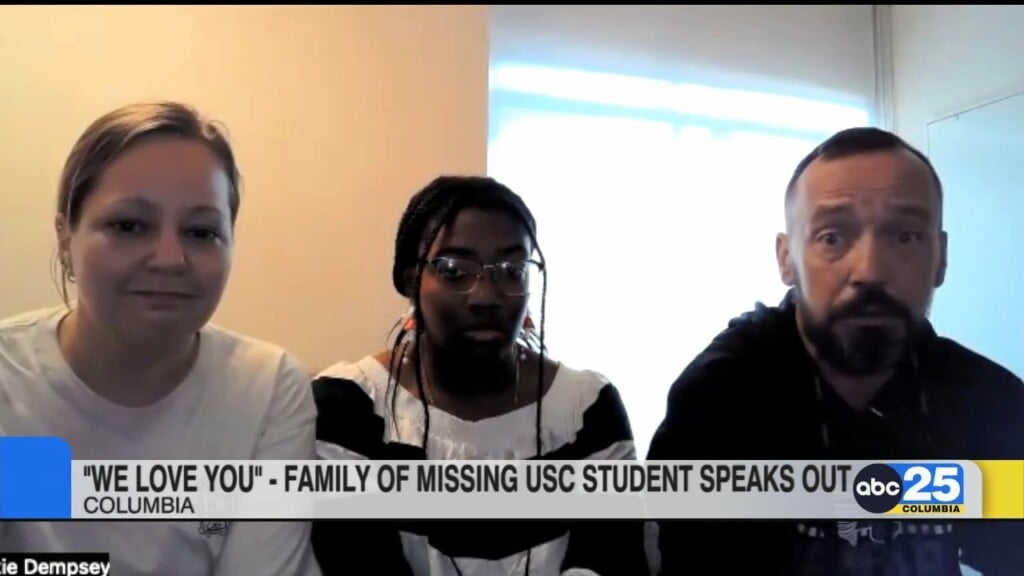Senators discuss potential role of vouchers in future of public education
Democratic Senators came together to say they oppose any measure involving vouchers
COLUMBIA, S.C. (WOLO) —State lawmakers continue to go back-and-forth about the state of education in South Carolina, but some are making a stand against legislation pushing for the use of school choice vouchers.
A school choice voucher uses government funding to give students a choice of what school they could attend.
On Wednesday, several Democratic lawmakers joined with educators to voice their displeasure for any bill calling for vouchers.
Some Republican lawmakers are pushing for vouchers because they say vouchers enable students to escape failing school districts, while Democratic Senators feel they take away money that could be used for other educational needs.
“Right now what we have in South Carolina is a complete monopoly system. Where you live, you go to one school and that’s it, irrespective of how that school performs. I want to provide low-income individuals, low-income families with the ability to escape failing schools,” said Sen. Tom Davis (R-Beaufort County).
However, some argue that vouchers encumber other issues in public education.
“The problem with vouchers is they take the precious public tax dollars we have and they take them out of public schools and they send them to private, sometimes non-profit schools where we don’t know how they’re being spent,” said Sen. Vincent Sheheen (D-Kershaw County).
One bill that is making its way through the committee process is Senate Bill 556, proposed by Sen. Shane Massey (R-Edgefield County), which would create scholarship accounts that give at-risk students in struggling districts more educational options.
Kathy Maness, the Executive Director of the Palmetto State Teachers Association, believes legislation that enables vouchers undermines the mission of public education.
“Our public schools must take every child that comes, and they can’t pick and choose, so we’re very concerned with public money going to private schools with no accountability,” Maness said.
As debate continues in the Senate chambers, some are still divided about the role of vouchers in the future of education.
“I want to empower lower-income families to escape failing schools because right now, they’re trapped and we can’t leave them trapped,” Sen. Davis said.
“We need to be practical, we need to do practical things like raising teacher pay to have great teachers, shrinking class sizes but focus on what brings us together. Vouchers just separate people in South Carolina,” Sen. Sheheen said.
Senators spent the majority of the day today debating whether a Teacher Bill of Rights would be a necessary addition to Senate Bill 419. The Teacher Bill of Rights was proposed by Senator Davis, and looks to empower teachers in a climate where they are not respected by students.
The original version of Sen. Davis’s Teacher Bill of Rights includes these provisions:
(1) have their professional judgment and discretion concerning disciplinary action or instructional decisions in the classroom made in accordance with school and district policy be fully respected by school and district officials;
(2) teach free from fear of frivolous lawsuits, including the right to qualified immunity and to a legal defense, and to indemnification by the employing school board for actions taken in the performance of duties of the teacher’s employment;
(3) take appropriate disciplinary measures, including the removal of persistently disruptive students, pursuant to school policy and district policy, to facilitate a learning environment built upon a mutual culture of respect between teachers and their assigned students;
(4) work in a safe, secure, and orderly environment that is conducive to learning and free from recognized dangers, hazards, or threats that are causing or likely to cause serious injury or disability;
(5) an unencumbered daily planning time, equal to no less of one quarter of their assigned instructional time, free from meetings, duties, or requirements incompatible with the effective planning of instruction;
(6) be free of excessive and burdensome paperwork related to disciplinary actions, state or district evaluation procedures, and other administrative inquiries that prevent fulfillment of the teacher’s primary directive to implement effective instruction for their students;
(7) additional compensation for work time required above and beyond stated contracted days and established work day parameters for duties associated with their responsibilities as teachers;
(8) receive, as teachers under induction contracts, leadership and support from school and district personnel, including the assignment of qualified mentors who:
(a) commit to helping them become competent and confident professionals in the classroom; and
(b) offer support and assistance as needed to meet performance standards and professional expectations; and
(9) file a declaratory judgment action if schools or school districts establish policies or implement standard expectations of behavior that prevent teachers from exercising the rights stated herein.
An amendment filed by Senator Chip Campsen (R-Charleston County) removed the “frivolous lawsuit” amendment from the Teacher Bill of Rights, and also changed the language of its first amendment.
The Senate Education Subcommittee is meeting to discuss Senate Bill 556 Thursday at 9 a.m. in Gressette Room 105.

